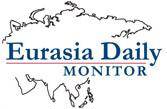The economic crisis is affecting Russia worse than most developed or emerging economies, but its direct impact is multiplied by the psychological shock from the sudden collapse of belief in a resurgent Russian state.
The erzats ideology of 'putinism' answered perfectly the ambitions of the new elites and the needs of a disoriented populace and included three key elements: prosperity, pride, and paternalism-or more precisely, Putin himself. All three are now in shambles.
That means that the main underlying assumption behind the inconsistent and hugely wasteful anti-crisis policy-that Russia only needs to muddle through a difficult year-is quite possibly just an exercise in wishful thinking. Prosperity would not return after a year of living meagerly; pride could hardly receive a boost from gloating over Ukraine's bankruptcy exacerbated by political squabbles; and the residual hopes that Putin knows what he is doing might evaporate in a matter of months. Russia has survived many devastating cataclysms in its history, but the hardest trials were set by declining respect for the authorities and diminishing trust in a common purpose. Putin had enjoyed an incredible run of good luck but failed to step down at the end of it, and he is now trying to apply his methods of enforcing consensus to crisis management. He has little chance of succeeding. His symbolic "father-of-the-nation" value is fast diminishing, and he can neither discipline nor bribe the disagreeable elites, who know that Medvedev is not up to the job and that they need a fresh prime minister.







